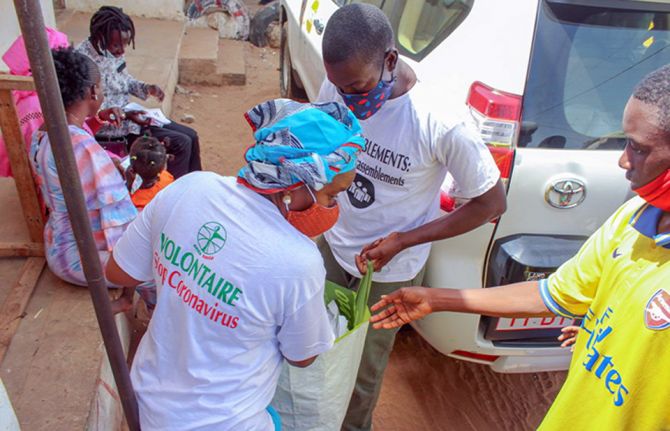

Feature Story
Francophonie calls for equitable distribution of COVID-19 vaccines
30 November 2020
30 November 2020 30 November 2020The Parliamentary Network to Combat HIV/AIDS, Tuberculosis and Malaria of the Parliamentary Assembly of the Francophonie has adopted a declaration inviting heads of state and government to consult and commit to defining vaccines against COVID-19 as “universal common goods.”
“It is our role as parliamentarians to explain to our fellow citizens that it is better to vaccinate the vulnerable around the world against COVID-19 than to vaccinate the entire population of certain countries that can afford to purchase large volumes of vaccine quickly. This is both more effective and fairer. If the epidemic is to be reduced in our constituencies, we need a global rollout,” said Christian Levrat, President of the Parliamentary Network to Combat HIV/AIDS, Tuberculosis and Malaria.
At the annual meeting of the francophone network, UNAIDS also urged parliamentarians to stop the disproportionate use of criminal law in responses to public health crises. UNAIDS also called for the promotion of additional investments in social safety nets, for livelihood and economic empowerment programmes and for the fostering of the resilience of vulnerable groups and community-based organizations. UNAIDS urged countries to put communities at the centre of the epidemic and to recognize community health services and civil society organizations as legitimate key actors in the responses to both HIV and COVID-19
“We need more support—political, technical and financial—from governments for community-based responses, demedicalization, decentralization and the endorsement of new community-based health tools such as HIV self-testing kits and pre-exposure prophylaxis,” said Patrick Brenny, Director of the UNAIDS Regional Support Team for West and Central Africa.
A conversation on the criminalization of HIV also took place during the meeting. The HIV Justice Worldwide coalition presented the parliamentarians with an update on legislative reform efforts in various francophone countries to address HIV criminalization. Not only does HIV criminalization exacerbate the stigma faced by people living with HIV and lead to serious violations of their human rights, it also erects barriers to accessing HIV prevention, testing and treatment services. UNAIDS and HIV Justice Worldwide are calling for legislative reforms in several francophone countries, including Burkina Faso, Canada, Côte d’Ivoire and Niger.



